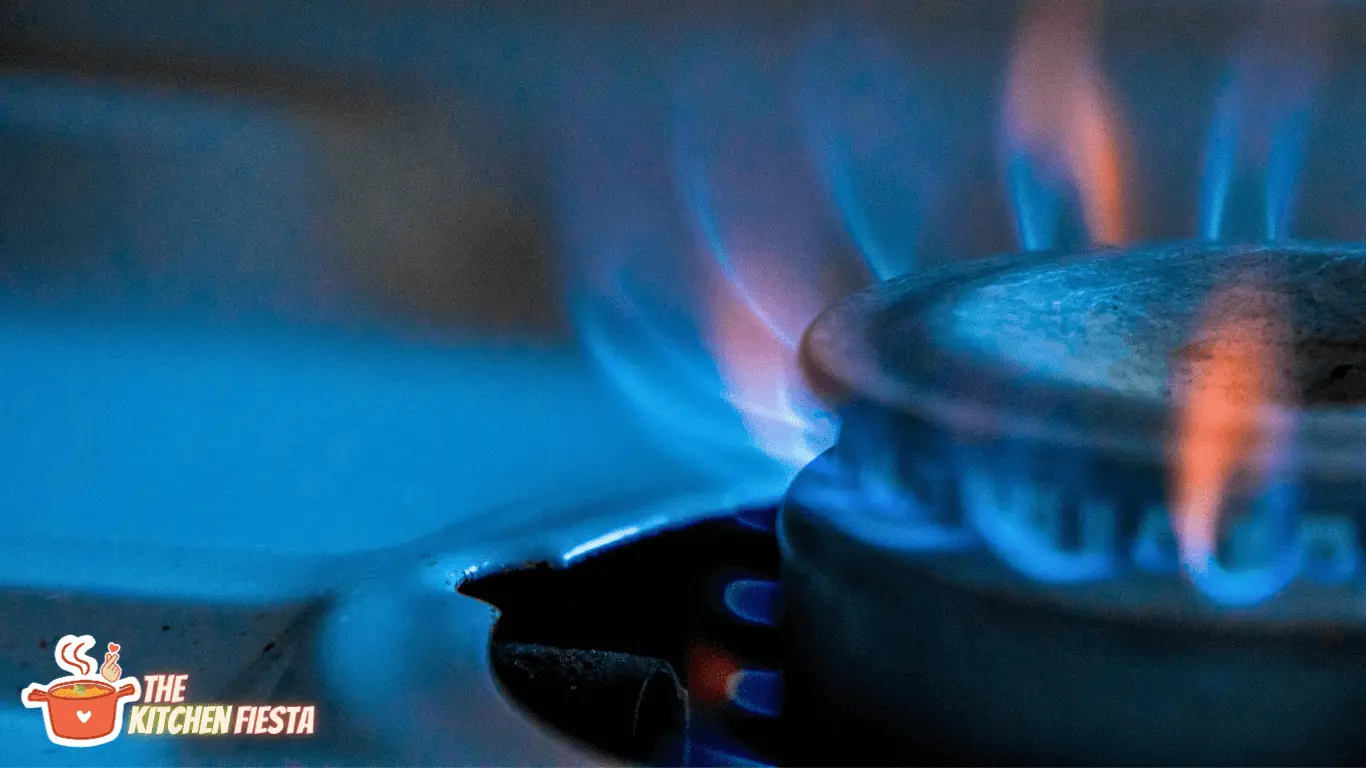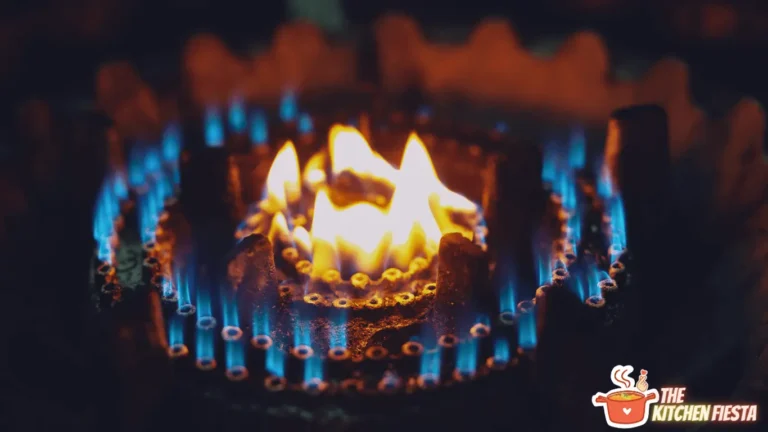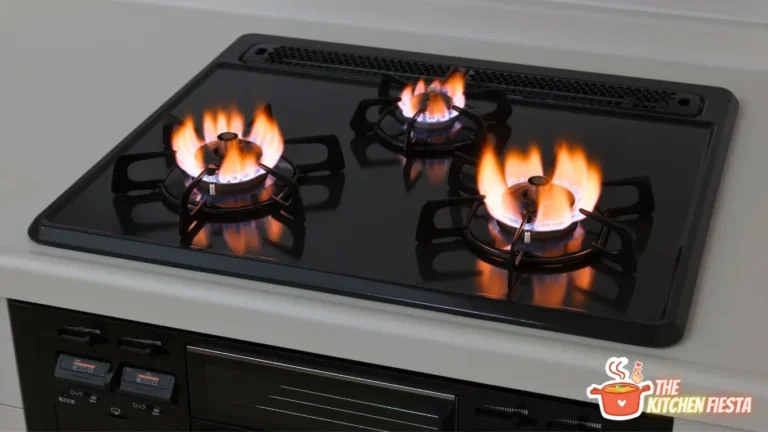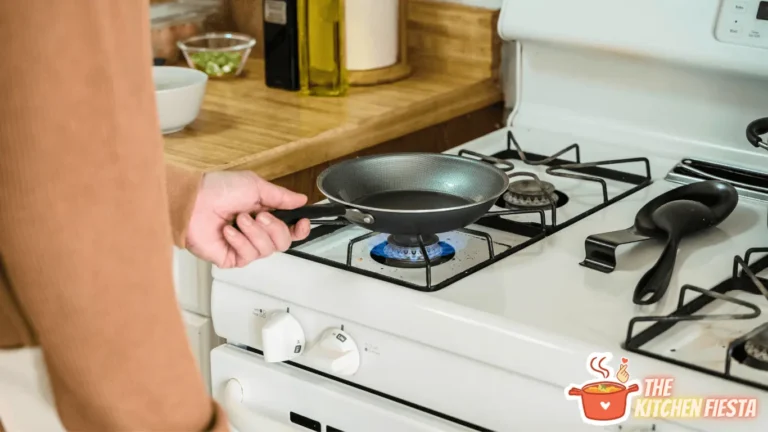What Causes a Gas Stove to Explode? The Risks and Precautions

Gas stoves are standard in many households, providing a quick and efficient way to cook food. However, as with any appliance that involves gas, there is always a risk of explosion. Gas stove explosions can cause severe injuries, property damage, and even fatalities. It is crucial to understand the causes of gas stove explosions to prevent such accidents from happening.
Gas leaks are the most common cause of gas stove explosions. A gas leak can occur due to damaged gas lines or connections. Over time, gas lines can become corrupted or damaged, leading to a gas leak. Natural gas is odorless, so gas companies add a chemical called mercaptan to give it a distinct smell. If you smell gas, it is essential to turn off the gas supply immediately and contact a professional to fix the issue.
Understanding Gas Stoves
Gas stoves are a popular and efficient way to cook food in many households. They use natural gas or propane to heat burners that cook food in pots and pans. Understanding the components of a gas stove and how it works can help prevent accidents and explosions.
Components of a Gas Stove
A gas stove consists of several components that work together to produce heat. These components include:
- Burners: These are the metal plates on top of the stove where pots and pans are placed. They contain small holes that allow gas to flow through and ignite when lit.
- Gas valves: These are the knobs on the front of the stove that control the gas flow to the burners. Turning the knob opens or closes the valve, adjusting the size of the flame.
- Igniters: These small devices create a spark to ignite the gas. Many modern gas stoves have electronic igniters, while older models may have a pilot light that must be manually lit.
- Gas lines: These are the pipes that carry gas from the main gas line to the stove. They can become damaged or corroded over time, leading to gas leaks.
How Gas Stoves Work?
When a burner knob is turned, gas flows through the gas line to the burner. The igniter creates a spark that ignites the gas, producing a flame. The flame size can be adjusted by turning the knob to control the gas flow. The flame heats the metal plate of the burner, which then heats the pot or pan placed on top.
Gas stoves are designed to be safe and efficient, but they can become dangerous if not properly maintained. Gas leaks can occur if the gas lines become damaged or corroded, leading to explosions. It is essential to inspect and maintain gas stoves to prevent accidents regularly.
Causes of Gas Stove Explosions
Gas stoves are a popular choice for cooking in many households. However, they can be dangerous if not used properly. Gas stove explosions can cause serious injuries, property damage, and even death. Here are some of the common causes of gas stove explosions.
1. Gas Leak
A gas leak is one of the most common causes of gas stove explosions. Natural gas is highly flammable; even a small spark can ignite it. If there is a gas leak in your home, it can build up and eventually cause an explosion. Signs of a gas leak include a hissing sound, the smell of rotten eggs, and dizziness or nausea. If you suspect a gas leak, evacuate your home immediately and call 911.
2. Faulty Ignition System
Another cause of gas stove explosions is a faulty ignition system. If the ignition system malfunctions, gas can build up in the stove and eventually ignite. This can happen if the igniter is dirty or damaged or the gas valve is not opening correctly. Regular maintenance of your gas stove can help prevent these issues.
3. Improper Installation
Improper installation of a gas stove can also cause explosions. If the gas line is not installed correctly, it can leak gas and cause an explosion. It is essential to have a professional install your gas stove to ensure that it is done correctly and safely.
In conclusion, gas stove explosions can be caused by various factors, including gas leaks, faulty ignition systems, and improper installation. It is essential to be aware of these risks and take steps to prevent them, such as regular maintenance and professional installation. If you suspect a gas leak or other issue with your gas stove, do not hesitate to seek professional help.
Signs of Potential Explosion
Gas stoves are a convenient and efficient way to cook food but can also be dangerous if not used properly. Here are some signs that your gas stove may be at risk of exploding:
1. Smell of Gas
One of the most apparent signs of a gas stove at risk of exploding is the smell of gas. If you smell gas in your kitchen, it is essential to act quickly. Turn off the stove and other gas appliances, open windows, and doors to ventilate the area, and evacuate the building. Call the gas company or fire department immediately to report the gas leak.
2. Unusual Flame Color
Another sign that your gas stove may be at risk of exploding is an unusual flame color. The flame on a gas stove should be blue with a small yellow tip. If the flame is mostly yellow or orange, it could indicate a problem with the stove. A clogged burner or a faulty gas valve could cause this. If you notice an unusual flame color, turn off the stove and call a professional to have it inspected.
3. Delayed Ignition
Delayed ignition is another sign that your gas stove may be at risk of exploding. This occurs when you turn on the stove, and there is a delay before the flame ignites. This delay can allow gas to build up in the area, increasing the risk of an explosion. If you experience a delayed ignition, turn off the stove immediately and have it inspected by a professional.
Preventing Gas Stove Explosions
Gas stove explosions are a serious safety concern that can be easily avoided with proper precautions. Regular maintenance, proper installation, and immediate leak response are essential for preventing gas stove explosions.
Regular Maintenance
Regular maintenance is crucial for ensuring the safe operation of a gas stove. It is recommended to have a professional inspect and service the stove at least once a year. The following maintenance tasks should also be performed regularly:
- Clean the burners and grates to prevent blockages and gas buildup.
- Check the gas lines and connections for leaks or damage.
- Inspect the control valve and ignition system for proper function.
- Replace any worn or damaged parts immediately.
Proper Installation
Proper installation is another critical factor in preventing gas stove explosions. Following the manufacturer’s instructions and local building codes is essential when installing a gas stove. The following installation guidelines should also be followed:
- Ensure that the stove is installed on a level surface.
- Use a flexible gas line that is properly sized and rated for the stove.
- Install a gas shut-off valve within easy reach of the stove.
- Ventilate the area properly to prevent gas buildup.
Immediate Leak Response
Gas leaks are a common cause of gas stove explosions. It is essential to respond immediately to any signs of a gas leak. The following steps should be taken:
- Turn off the gas supply to the stove immediately.
- Open windows and doors to ventilate the area.
- Do not use any electrical devices or open flames.
- Call a professional to repair the leak and inspect the stove.
Conclusion
In conclusion, gas stove explosions can be caused by various factors, including gas leaks, faulty igniters, loose connections, and damaged gas lines or connections. It is essential to take precautions to prevent these incidents, such as regular maintenance and inspections of gas appliances, prompt repair of damaged gas lines or connections, and immediate evacuation and calling of emergency services in case of suspected gas leaks.
Homeowners should also be aware of the signs of gas leaks, such as the smell of gas, hissing or whistling sounds, and dead plants or vegetation around gas lines. They should also avoid using gas appliances near flammable materials, such as curtains or paper, and keep them away from children or pets.
While gas stove explosions can be dangerous and even fatal, they are relatively rare. By following proper safety measures and preventing gas leaks and other potential hazards, homeowners can enjoy the convenience and efficiency of gas appliances without putting themselves or their families at risk.
Frequently Asked Questions
How do gas leaks occur in a stove?
Gas leaks can occur in a stove due to damaged gas lines or connections. Over time, gas lines can become corrupted or damaged, leading to a gas leak. In addition, improper installation or maintenance of the stove can also cause gas leaks.
What are the common causes of gas stove explosions?
The most common cause of gas stove explosions is gas leaks. Any natural gas leak can be a potential hazard waiting to happen. If natural gas leaks, there’s a good chance it will eventually catch fire and cause an explosion. Improper or insufficient venting can also easily lead to explosions.
What precautions should you take to prevent gas stove explosions?
To prevent gas stove explosions, it is essential to ensure proper installation and maintenance of the stove. Regularly check for gas leaks and ensure that the stove is properly vented. Never use a stove that has a damaged gas line or connection. In addition, always follow the manufacturer’s instructions and guidelines for use.
What are the signs of a gas leak in a stove?
The signs of a gas leak in a stove include a hissing sound coming from the stove or gas line, a strong odor of gas, and a yellow or orange flame instead of a blue flame. In addition, if you notice any physical damage to the stove or gas line, it is essential to check it for gas leaks.
Is it safe to use a gas stove after a small explosion?
No, using a gas stove after a small explosion is not safe. Even if the stove appears to be functioning normally, there may be damage to the gas line or connections that could lead to a gas leak and potential explosion. It is essential to have the stove checked by a professional before using it again.
What should you do if you suspect a gas leak in your stove?
If you suspect a gas leak in your stove, it is essential to vacate the area and call 911 immediately. Do not use electrical switches or appliances, which can cause a spark and ignite the gas. Wait for emergency responders to arrive and follow their instructions.






